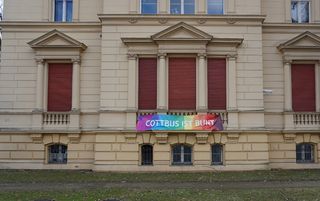
This doctoral project explored to what extent local negotiations of far-right contestations contribute to the latter’s normalisation. The project was prompted by the crux that even though the central role of cities and local participatory planning processes in countering far-right contestations is widely acknowledged, far-right contestations have hardly been challenged. It addresses two scholarly blind spots: First, mainstream accounts engaging with the question of how municipalities deal with far-right contestations have largely externalised the far right from urban democracy. Consequently, the current literature is not able to grasp how far-right agendas and ideologies can indeed be normalised within local participatory processes. Second, the actors and processes involved in the local negotiation of far-right contestations remain understudied.
To fill these gaps, the cumulative dissertation connects discussions on urban governance with recent debates on the rise of the far right. The methodological framework of this thesis consists of a qualitative, explorative single-case study in the city of Cottbus, Germany. The analysis reveals that the liberal narratives of externalisation create a false dichotomy between far-right contestations and local negotiations in liberal democracies in a threefold way. First, they ignore how far-right contestations can be strengthened within traditional deliberative processes, as their promise of equal participation for all citizens is juxtaposed with the inability of such processes to re-negotiate the power relations aggravating the social inequalities giving rise to the far right in the first place. Second, by externalising the divisiveness propagated by far-right contestations, they overlook the interconnectedness between racism and the institutions governing cities, which offers points of contact for far-right ideology. Third, it is argued that this points to the local state as contested terrain.
This work was funded by a doctoral scholarship by the Studienstiftung des deutschen Volkes.
